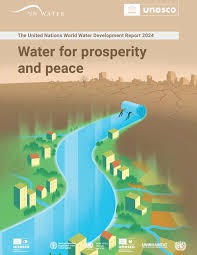Human Settlements: WASH, Disaster Risk reduction and Migration

This chapter focuses on leveraging water in human settlements for community stability and peacebuilding, especially in fragile states and conflict-affected contexts, including its contribution to disaster risk reduction (DRR) and migration management.
Understanding the root causes of the tensions and their context, including discrimination and inequalities, is a first step towards peacebuilding. Disparities in access to water, sanitation and hygiene (WASH) services between and within different settlements have heightened inequality, not only in terms of access, but also in terms of the cost of services (World Bank, 2017a; Boakye-Ansah et al., 2019). Such disparities also exist within communities, with certain individuals and groups having lower access to WASH services. While the wealthiest people generally receive safe water and sanitation at a very low price, the poor often pay much higher prices for unsafe services of much lower quality (WWAP, 2019). Inequality in access to water and sanitation services, while not necessarily a direct driver of conflict, presents significant barriers to socio-economic stability and prosperity.
The interrelation between water cooperation, interstate relationships, and post-conflict recovery underlines water’s significance in fostering cooperation, managing disputes, and sustaining political stability. The chapter highlights cases where authorities have not given sufficient priority to ensuring equity and non-discrimination in access to water and sanitation services, particularly between formal and informal settlements, rural and urban areas, highest and lowest wealth quintiles, with special attention to marginalized groups. In terms of sanitation, higher-level services such as sewerage extensions have often targeted more high-end communities, deemed to be of higher market value than low-income and informal settlements. This has often led to perpetuating gender inequalities, as well as declines in social stability, individual and collective health and well-being, and economic productivity in the marginalized areas. This is not only hampering human rights, prosperity and stability for those directly affected, but can also spill over to other regions of a country and beyond its borders.
